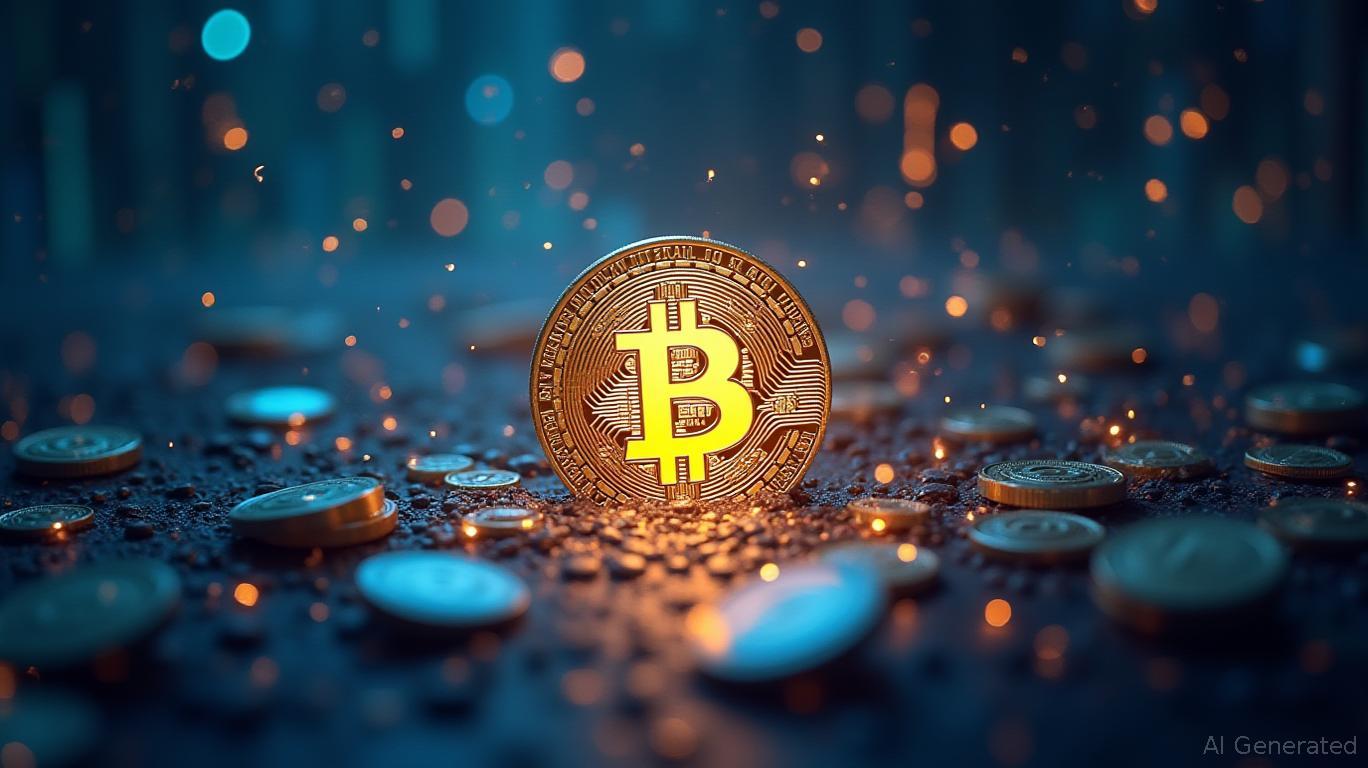Tokenized Deposits and Stablecoins: Competing for the Future of Blockchain-Based Finance
- Omid Malekan criticizes tokenized deposits for limited flexibility and interoperability compared to stablecoins, which offer cross-platform utility and 1:1 reserves. - Standard Chartered forecasts a $2 trillion RWA market by 2028, driven by DeFi growth and stablecoin liquidity, with Ethereum dominating due to its reliability and ecosystem. - Regulatory clarity, especially in the U.S., remains a critical challenge, with Standard Chartered warning of potential delays before 2026 midterm elections. - The de
Omid Malekan, an adjunct professor at Columbia Business School, expresses doubts about tokenized bank deposits, claiming they do not offer the same adaptability or technical benefits as stablecoins, as reported by
Malekan argues that tokenized deposits—which are essentially bank account balances recorded on a blockchain—are more limited in function than stablecoins. He compares them to "a checking account that only allows you to write checks to others at the same bank," highlighting their restricted use for transactions outside their own network, as per Cointelegraph. In contrast, stablecoins are fully backed and overcollateralized, providing enhanced security and flexibility. They can be moved between various crypto platforms, integrated into decentralized apps, and utilized in lending protocols—capabilities that tokenized deposits lack due to know-your-customer (KYC) requirements and restricted access.

In contrast, Standard Chartered foresees tokenized RWAs playing a pivotal role, projecting a dramatic rise in market value from $35 billion today to $2 trillion by 2028—a 5,600% increase. The bank credits this surge to the growing stablecoin sector, which has brought $300 billion in on-chain liquidity and promoted wider DeFi adoption. Geoffrey Kendrick, the bank’s head of digital assets research, believes stablecoins have paved the way for the tokenization of traditional assets like money-market funds, stocks, and real estate. He estimates $750 billion each in tokenized money-market funds and listed equities, with further expansion in funds, commodities, and corporate bonds, as mentioned by
According to
However, obstacles persist. Malekan’s concerns highlight the risks of tokenized deposits, such as their dependence on fractional reserves and limited ability to interact with other systems. At the same time, Standard Chartered warned that ongoing regulatory ambiguity—especially in the U.S.—could slow progress if clearer rules are not established before the 2026 midterm elections, as referenced by
This ongoing discussion mirrors larger issues within the financial sector. While Malekan sees tokenized deposits as less effective than stablecoins, Standard Chartered and other advocates believe RWAs can connect traditional finance with blockchain advancements. As DeFi moves from a specialized area to mainstream use, the competition to shape the future of financial infrastructure is heating up, according to
Disclaimer: The content of this article solely reflects the author's opinion and does not represent the platform in any capacity. This article is not intended to serve as a reference for making investment decisions.
You may also like
49ers Take a Risk on Frequently Injured Edge Rusher in Last-Minute Move
- 49ers intensify bid for Dolphins' Jaelan Phillips, joining Eagles and Patriots in trade deadline race, per Bleacher Report. - Dolphins demand third-round pick for Phillips, seeking draft capital amid 2-7 record and rebuild under interim GM Champ Kelly. - 49ers' defense (9 sacks this season) needs reinforcement after Bosa's ACL tear, making Phillips' recent 3-sack form a high-risk, high-reward target. - Phillips' injury history (Achilles, ACL) contrasts with recent resurgence, positioning him as top trade

Algorand (ALGO) Sees 0.39% Increase on November 2 Despite Fluctuating 24-Hour Results
- Algorand (ALGO) rose 0.39% on November 2, 2025, but fell 2.39% weekly amid crypto market volatility driven by macroeconomic uncertainty and shifting investor behavior. - Upcoming U.S. economic reports on November 5, including ADP employment and PMI data, may influence central bank policies and inflation expectations, indirectly affecting crypto prices. - ALGO’s price of $0.18 is above the 50-day but below the 200-day moving average, with an RSI near 50, indicating balanced short-term and long-term moment
YFI Declines by 0.06% as Lock-Up Deals and Market Fluctuations Persist
- Yearn Finance (YFI) fell 0.06% to $4,742 on Nov 2, 2025, amid expiring lock-up agreements for Pineapple Financial and Range Capital shares. - Lock-up restrictions, designed to stabilize post-IPO/merger markets, ended after 181 days for Pineapple and 600,000 units for Range Capital, boosting liquidity. - YFI's decline showed no direct link to unlocking events, with analysts attributing its 41.01% annual drop to broader crypto market dynamics and macroeconomic factors. - Market volatility highlights interc
Deutsche Telekom's Blockchain Initiative: Safeguarding the Decentralized Future of AI
- Deutsche Telekom joins Theta Network as an enterprise validator, the first telecom company to operate a node on the blockchain platform. - Theta's EdgeCloud leverages distributed GPU resources to enable low-latency AI, media, and real-time data processing applications. - Telekom's blockchain engagement includes Ethereum/Polkadot validation and Bitcoin mining, reflecting its Web3 infrastructure strategy. - The partnership highlights blockchain's shift toward enterprise infrastructure, offering cost-effect
